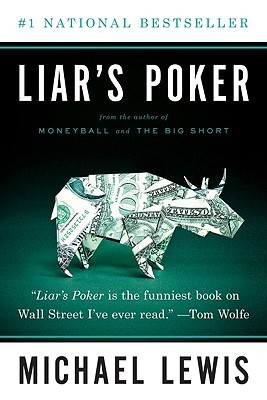
Liar's Poker
Book Description
Money, power, and deceit collide on the trading floor in a world where fortunes are gambled in seconds. Michael Lewis pulls back the curtain on Wall Street’s high-stakes poker game, exposing a ruthless culture where charm and bravado trump expertise. With charismatic brokers and cutthroat traders, trust is a luxury no one can afford. As the stakes rise and the stakes surge, alliances are tested, and the thrill of victory dances dangerously close to the agony of defeat. What happens when lies become the currency of success in a cutthroat world where everyone plays to win?
Quick Book Summary
"Liar's Poker" by Michael Lewis offers a vivid insider account of Wall Street during the 1980s, focusing specifically on Salomon Brothers, one of the era’s most influential investment banks. Lewis shares his personal experiences as a bond salesman, revealing a chaotic culture where aggression, wit, and risk-taking are prized over formal expertise or ethics. The book exposes the greed, ambition, and often reckless behavior fueling the financial boom, exploring how young traders were entrusted with huge sums and little oversight. Through sharp storytelling and memorable anecdotes, Lewis illustrates how a game of deception, bravado, and high-stakes gambles became the norm, fundamentally shaping the people and workings of modern finance.
Summary of Key Ideas
Table of Contents
Culture of Greed and Ambition
Michael Lewis’s journey into the heart of Wall Street begins when he lands a job at Salomon Brothers, one of the biggest names in investment banking. Fresh out of Princeton and with little financial background, he is swept into a world ruled by charismatic traders and ruthless ambition. New hires are introduced to alpha-dominated hierarchies and trained to embrace the cutthroat methodologies that drive the lucrative bond markets. The infamous training program both indoctrinates and entertains, teaching lessons less about finance and more about surviving—a Darwinian classroom where the meek seldom make it.
Deception and Risk-taking
The central arena in "Liar’s Poker" is the trading floor, where fortunes are made—or lost—in seconds. Salomon’s culture rewards those who bluff, posture, and take outsized risks, with reward systems based less on skill and more on audacity. The firm’s rise to prominence was powered by innovations in mortgage-backed securities, a new and poorly understood financial instrument at the time. As bond salesmen become the envy of Wall Street, Lewis explores how technical expertise often takes a backseat to cunning manipulation and relentless self-promotion.
The Bond Market Revolution
Trust and loyalty are rare commodities, as Lewis details the intricate power games that color every relationship. Alliances are fragile and rivalries intense; one wrong move can lead to social or professional exile. Traders and salesmen, despite outward camaraderie, are constantly seeking to outwit both clients and colleagues. The internal competition fuels an atmosphere where deceit is a strategy and where winning often means someone else must lose.
Power Dynamics on Wall Street
Underlying the bravado and high-stakes play is a sobering portrait of risk and its consequences. As fortunes are gambled on the swing of a market, the human cost mounts. Lewis observes numerous examples where a deal gone bad or a market miscalculation results in ruin—individuals are cast aside as quickly as they rise, with little institutional loyalty or long-term consequences considered. The book critically examines how the drive for ever-greater profits can lead to moral hazards and destabilize the very institutions that are supposed to steer the economy.
The Human Cost of Financial Excess
Ultimately, "Liar’s Poker" is more than just a memoir or exposé. Through candid storytelling and sharp wit, Michael Lewis provides readers with a first-hand account of the excess, innovation, and underlying instability that defined Wall Street in the 1980s. His narrative foreshadows the events of future financial crises and prompts readers to question the values and incentives that shape the world of high finance. The lessons from this era continue to resonate, reminding us of the perils inherent in a financial system where bluffing and bravado become guiding principles.
Download This Summary
Get a free PDF of this summary instantly — no email required.





